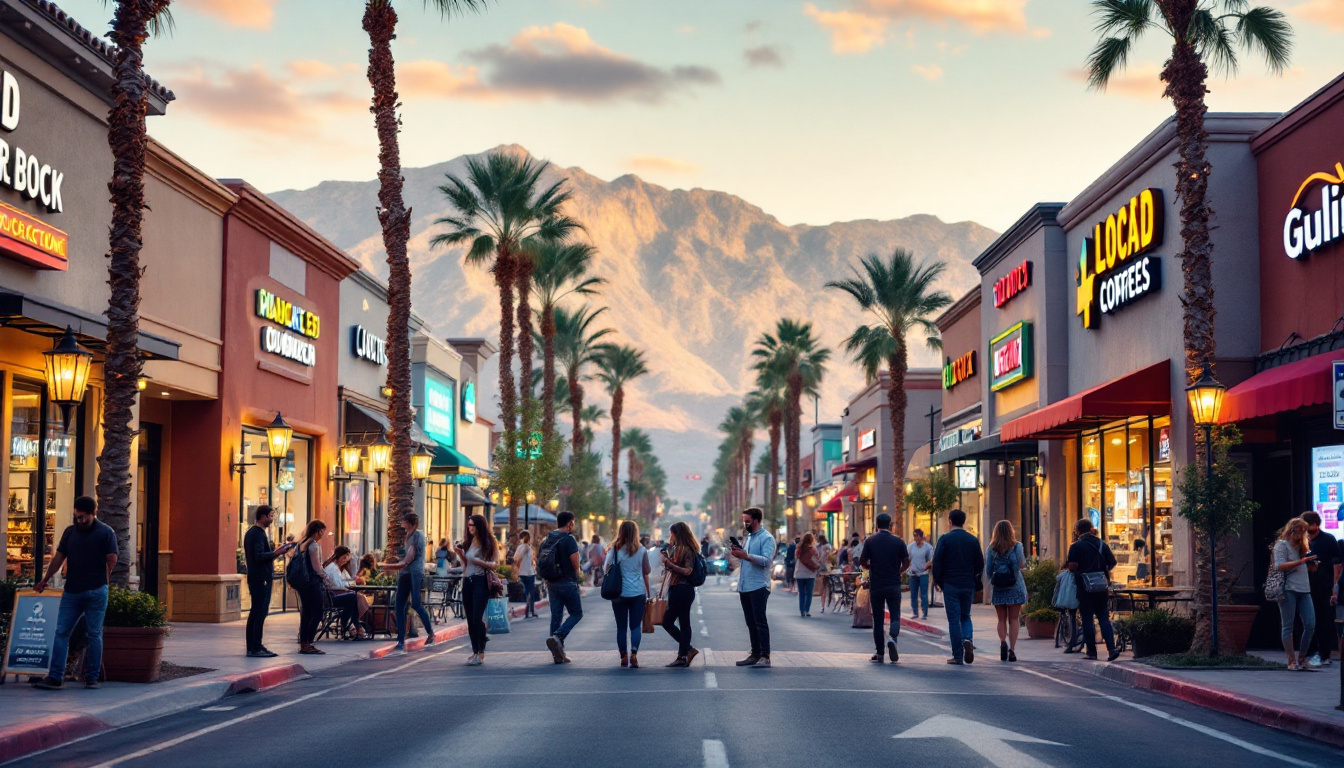Top PPC FAQs Answered for Henderson, NV Businesses

Pay-per-click (PPC) advertising has become an integral part of modern digital marketing strategies, particularly for businesses in Henderson, NV. With its ability to drive targeted traffic to websites, PPC serves as an effective means for local businesses to grow their customer base and reinforce their online presence. In this article, we will explore some of the most frequently asked questions about PPC to help clarify this essential marketing tool. Whether you’re new to PPC or looking to refine your existing campaigns, you’ll find valuable insights below.
What is PPC and how does it work?
PPC, or pay-per-click, is an online advertising model that allows businesses to display ads on search engines and other platforms, paying only when a user clicks on the ad. This performance-based advertising model contrasts with traditional forms of advertising where you pay for ad space regardless of audience engagement. The beauty of PPC lies in its ability to provide measurable results, allowing businesses to track their return on investment (ROI) with precision. This data-driven approach empowers marketers to make informed decisions and optimize their campaigns for better performance.
PPC works primarily through bidding on keywords relevant to your business. Advertisers select keywords they think potential customers might use in search engines. For instance, a bakery in Henderson might bid for keywords like “best cupcakes Henderson” or “fresh bread near me.” When a user searches for these terms, ads may appear in the search results, often above or below organic listings. This strategic placement can lead to increased visibility, driving traffic to the business's website. Additionally, PPC platforms often provide tools to analyze keyword performance, enabling advertisers to refine their keyword strategy over time.
The position of these ads depends on various factors, including the bid amount, ad quality, and the relevance of the keywords chosen. Thus, having a well-structured PPC strategy is essential for maximizing visibility and achieving desired outcomes. An essential element of PPC is the landing page, which is where users land after clicking the ad. A well-designed landing page that aligns with the ad's promise can significantly enhance conversion rates. Furthermore, incorporating elements such as testimonials, trust signals, and a clear value proposition can help persuade visitors to take the desired action, whether it’s making a purchase, signing up for a newsletter, or requesting more information.
Key Components of PPC
Successful PPC campaigns consist of several key components:
- Keywords: The foundation of PPC is selecting the right keywords that resonate with your target audience.
- Ad Copy: Compelling ad copy can significantly increase click-through rates. It should be engaging and include a clear call to action.
- Landing Page: The page users land on after clicking should be relevant, informative, and optimized for conversions.
- Bidding Strategy: Different bidding strategies, such as manual or automated bidding, affect how much you'll pay for each click.
Another vital aspect of PPC is ongoing campaign management. This involves regularly monitoring performance metrics, such as click-through rates, conversion rates, and cost per acquisition. By analyzing these metrics, advertisers can identify which ads are performing well and which may need adjustments. A/B testing is a common practice in PPC, where different versions of ads or landing pages are tested against each other to determine which performs better. This iterative process not only helps in refining the ads but also ensures that the advertising budget is being utilized effectively, maximizing the potential for higher returns.
Moreover, PPC is not limited to search engines alone. Social media platforms like Facebook, Instagram, and LinkedIn also offer robust PPC advertising options, allowing businesses to reach their audience where they spend a significant amount of time. These platforms often provide advanced targeting options, enabling advertisers to hone in on specific demographics, interests, and behaviors. This level of targeting can lead to more relevant ads being shown to users, increasing the likelihood of engagement and conversions. As the digital landscape continues to evolve, staying updated on PPC trends and best practices is crucial for businesses looking to maintain a competitive edge.
Why is PPC important for local businesses?
PPC is particularly vital for local businesses because it allows them to reach potential customers within their geographic area quickly. In a competitive market like Henderson, NV, utilizing PPC can offer significant advantages in attracting local clientele. With the rise of mobile search, many consumers are looking for services and products near them, making PPC an essential tool for local visibility.

One of the primary benefits of PPC is its ability to target specific demographics. By combining geographic targeting with keyword bidding, local businesses ensure that their ads appear only to users searching for their products or services in their immediate vicinity. This means higher chances of conversion as the ads reach the audience that is most likely to make a purchase. Additionally, the ability to use ad extensions, such as location information and call buttons, further enhances the effectiveness of local PPC campaigns, making it easier for potential customers to engage directly with the business.
Benefits of PPC for Local Businesses
Here are some key benefits of utilizing PPC for local businesses:
- Immediate Results: Unlike organic search engine optimization, which takes time to yield results, PPC allows businesses to drive traffic and visibility almost instantly.
- Flexibility: Businesses can easily adjust their campaigns based on performance data, tweaking keywords, ad copy, or budgets to achieve optimal results.
- Brand Visibility: Even if someone doesn’t click on your ad, they still see your brand, increasing familiarity and trust over time.
Moreover, PPC campaigns can be tailored to align with local events or seasonal trends, allowing businesses to capitalize on timely opportunities. For instance, a local restaurant might run a PPC campaign promoting a special menu during a festival, ensuring that they attract foot traffic from both locals and visitors. This adaptability not only enhances the relevance of the ads but also fosters a stronger connection with the community.
Furthermore, the analytics provided by PPC platforms enable businesses to gain insights into consumer behavior and preferences. By analyzing which ads perform best and understanding the demographics of those who engage with them, local businesses can refine their marketing strategies. This data-driven approach not only improves the effectiveness of current campaigns but also informs future marketing efforts, ensuring that local businesses remain competitive in an ever-evolving market.
How to select the best PPC platform?
Selecting the appropriate PPC platform is crucial to the success of your advertising efforts. Various platforms offer PPC services, including Google Ads, Bing Ads, and social media networks like Facebook and Instagram.
For most local businesses, Google Ads is typically the go-to platform due to its extensive reach and usability. However, it’s essential to assess your target audience's habits and preferences. For example, if your business has a strong visual component, platforms like Instagram or Pinterest may prove more effective.
Factors to Consider
When selecting a PPC platform, consider the following factors:
- Target Audience: Understand where your audience spends their time online and choose the platform accordingly.
- Ad Formats: Different platforms offer various ad formats, so opt for one that aligns with the nature of your business.
- Budget and Costs: Analyze the costs associated with each platform, as some may be more expensive than others.
What are the costs associated with PPC?
The costs associated with PPC vary widely depending on several factors, including competition for keywords, the quality of your ads, and your geographic target area. In Henderson, NV, local competition can also affect pricing.
Typically, businesses operate on a bidding system where they set a maximum amount they are willing to pay for each click. On average, the cost-per-click (CPC) can range anywhere from $0.50 to over $5.00, depending on the industry's competitiveness. Some industries, like legal services and insurance, often experience higher CPC rates due to the fierce competition.
Understanding Your Budget
Proper budget management is crucial in PPC campaigns. Here are some tips to help manage costs effectively:
- Set Clear Goals: Understand what you hope to achieve through your PPC campaigns—be it brand awareness, lead generation, or sales.
- Track Performance: Analyze and track your campaigns regularly to identify areas for improvement and reallocate budget accordingly.
- Optimize Bids: Use bid adjustments to allocate more budget to high-performing ads, ensuring maximum ROI.
How to measure the success of your PPC campaigns?
To determine the effectiveness of your PPC campaigns, you need to track specific metrics that provide insights into performance. One of the most common ways to measure success is through the use of conversion tracking.

Key metrics to monitor include:
- Click-Through Rate (CTR): This indicates how often people click on your ads compared to how often they appear, serving as a measure of your ad copy and targeting effectiveness.
- Conversion Rate: This reflects the percentage of visitors who complete a desired action (e.g., a purchase or signup) after clicking your ad.
- Return on Ad Spend (ROAS): Calculating ROAS helps businesses understand the revenue generated for every dollar spent on PPC.
Tools for Measuring Success
Utilizing tools such as Google Analytics and Google Ads reports can significantly enhance your ability to track and analyze your campaigns. Take time to set up goals within these platforms, allowing for granular tracking of conversions and user behavior.
In summary, PPC advertising is indispensable for businesses in Henderson, NV, looking to enhance their online visibility and drive local traffic. By understanding its fundamentals, importance, costs, platforms, and how to measure success, you will be better equipped to create a PPC strategy that aligns with your business goals and maximizes your marketing ROI.

As a Google Ads expert, I bring proven expertise in optimizing advertising campaigns to maximize ROI.
I specialize in sharing advanced strategies and targeted tips to refine Google Ads campaign management.
Committed to staying ahead of the latest trends and algorithms, I ensure that my clients receive cutting-edge solutions.
My passion for digital marketing and my ability to interpret data for strategic insights enable me to offer high-level consulting that aims to exceed expectations.